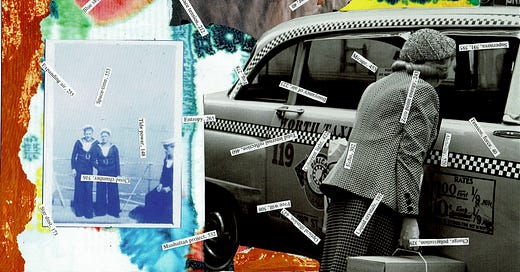high school never ends
Lately I’ve been feeling self-conscious about how much I write about high school. Maybe it’s just that trite writing advice to “write what you know,” stuck in my head, but when I think about the stories I want to tell, most of them have something to do with growing up. Maybe when I’m a little older this won’t be the case. But for now I feel like I’m in this sweet spot where the experience of being a kid is still fresh in my mind, and I want to write about it.
A LitHub article had some insight from authors re: writing what you know. I liked what Nathan Englander had to say:
I think the most famous piece of writing advice that there is is ‘write what you know,’ and I think it’s—honestly, I think it’s the best piece of advice there is, but I think it’s the most misunderstood, most mis-taught, most misinterpreted piece of advice that there is. . . what it is is empathic advice; it’s advice about feeling. . . Why do we love those books [we love], why do they change us, why do they touch our hearts, why do they hold so much meaning? Because they are truer than truth; because there is a great knowing within them, and I think what’s behind ‘write what you know’ is emotion.
Like, have you known happiness? Have you ever been truly sad? Have you ever longed for something? And that’s the point, if you’ve longed for an Atari 2600, as I did when I was twelve, all I wanted was that game console, if you have felt that deep longing, that can also be a deep longing for a lost love or for liberation of your country, or to reach Mars. That’s the idea: if you’ve known longing, then you can write longing. And that’s the knowing behind ‘write what you know.’
High school has inspired so many books, movies, and shows, partly because it’s a time when you feel everything so deeply and you have no choice but to let it be felt.
Looking back at old journals, I was surprised at the things my friends and I did—we wrote poems and actually read them to people, started a band, wrote and recorded songs, performed live, held seances, cast spells. When we wanted to do something, we let ourselves be excited and we just did it. I think that willingness to do what excites you without worrying too much is something worth holding onto.
I’m older now, but I feel like fundamentally, I am the same person I’ve always been, the same as I was in high school and before that. Bowling for Soup perhaps said it best:
And I still don’t have the right look
And I still have the same three friends
And I’m pretty much the same as I was back then
High school never ends
In the spirit of getting lost in something, I spent some time collaging this week. I have always loved collaging because I’m not good at drawing or painting, but I love arts and crafts. I usually tear up images and put them back together again; I like how you can see the seams of the paper where it’s been ripped, catch a glimpse of the picture it once was versus what it has become. I’m a fan of this method of exposing the process, of letting the viewer in on the manipulation of images rather than trying to create one of those seamless mind-bending collages (though I love those too, see below).
A couple weeks ago when I was doing my fall cleaning, I found a physics textbook from—I kid you not—1971. How it got here is a mystery. I couldn’t find anywhere to donate a 49-year-old textbook, so I got creative. I decided to make a found poem of out of the index terms. I went through and cut out the terms that stood out to me: “Expanding air, 255”; “Tide power, 148”; “Free will, 508,” “Tug of war, 40,” and so on.
I ran out of glue before I could put the words on, so I scattered them on the scanner and stuck the collage on top:

It’s great to get back into something that I used to love so much. I’m trying to tear a page out of my high school playbook, and let that process—however cringy or messy—be seen.




